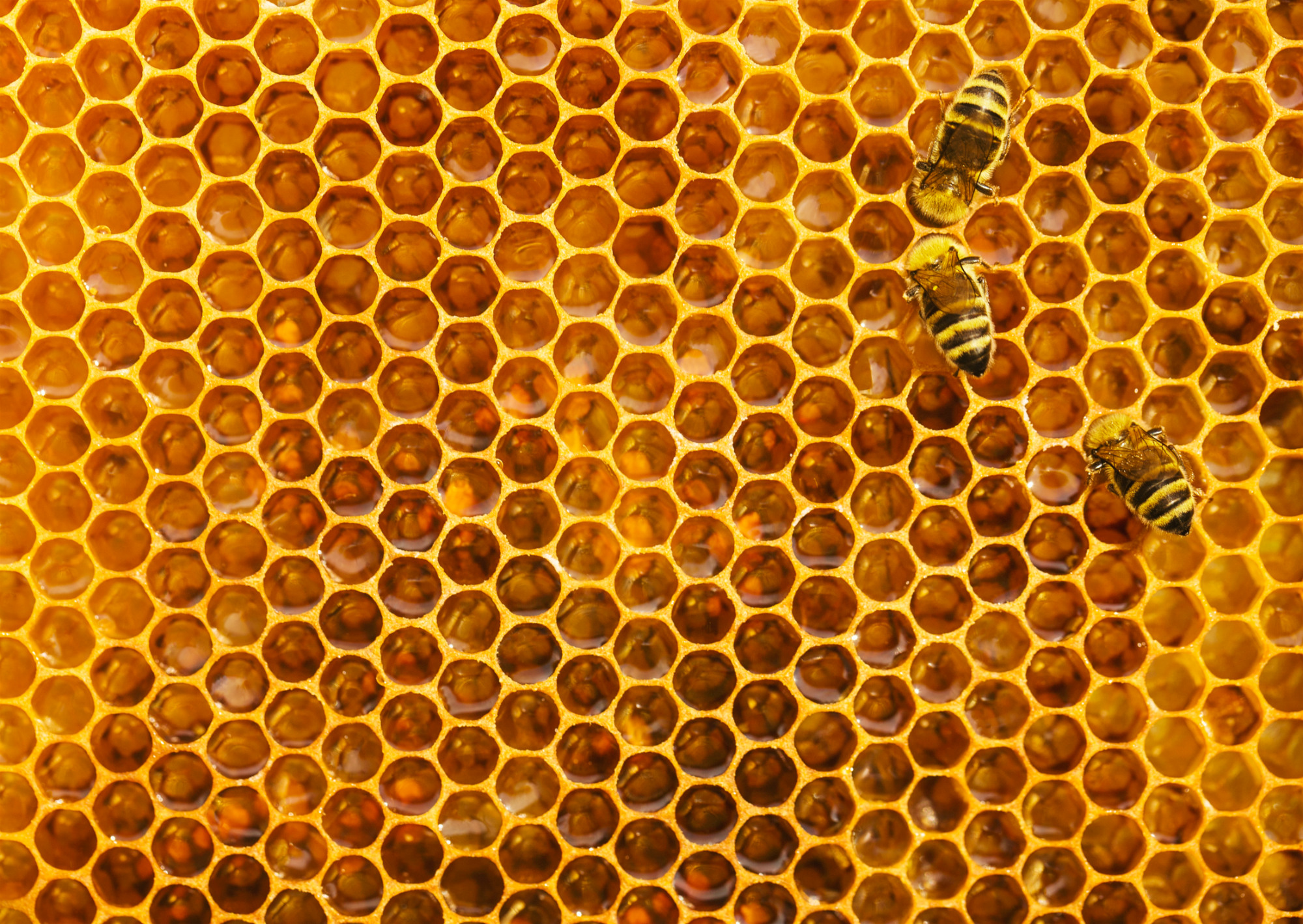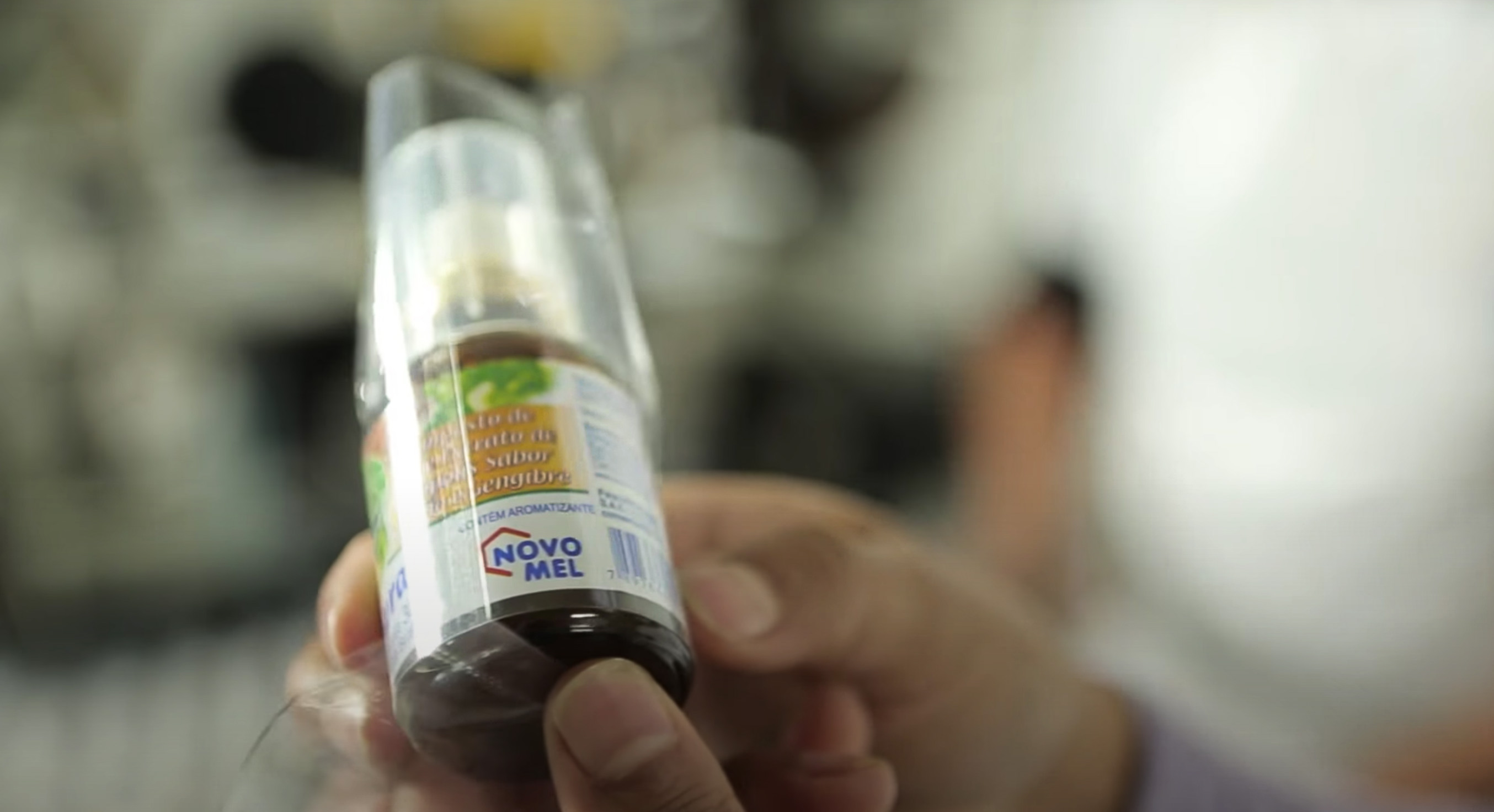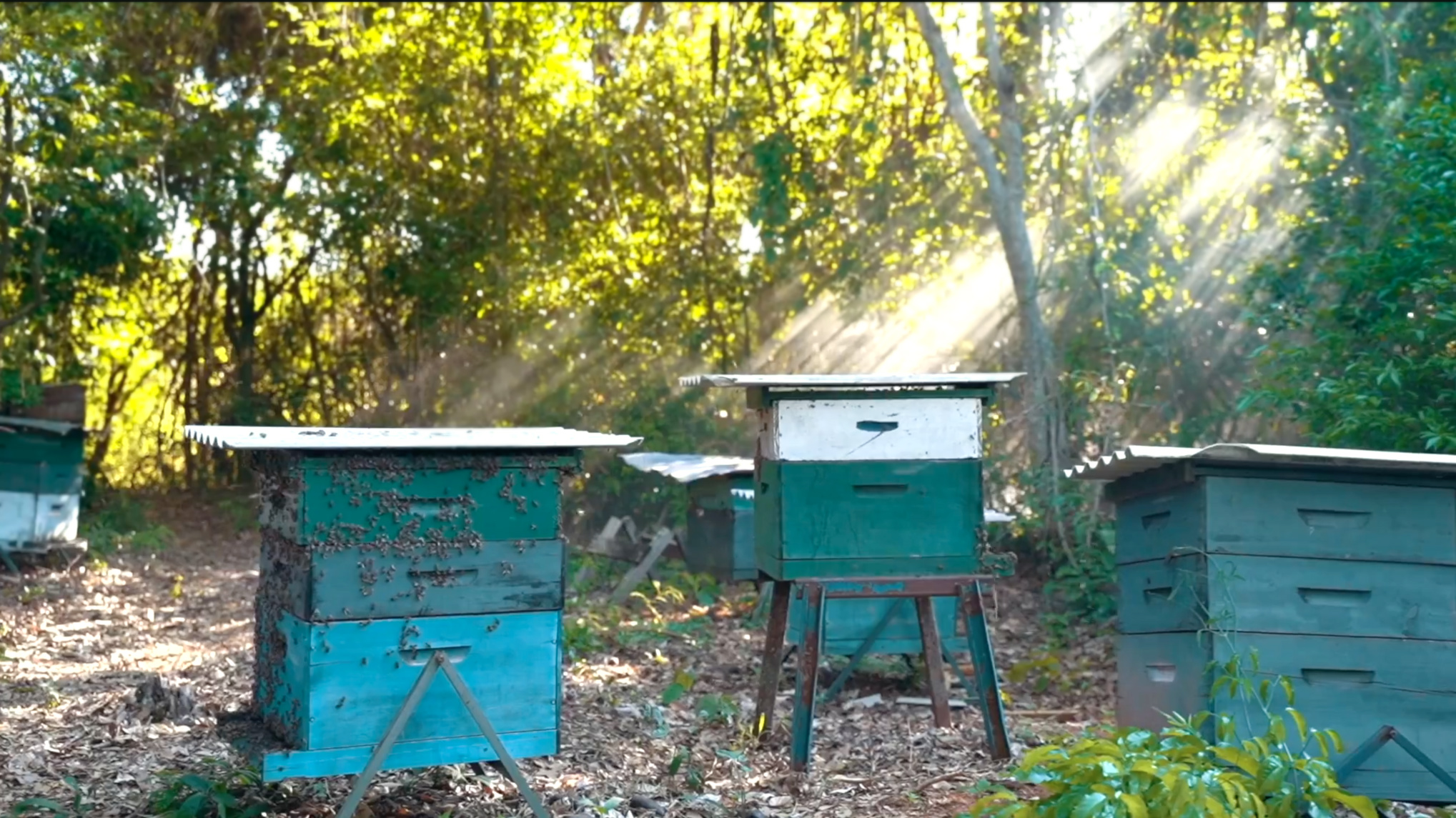
Photo credit: Shutterstock
Honey is traveling from deep in the Brazilian jungle all the way to China, where consumers are buzzing to get a taste.
Family-run honey and propolis company Novo Mel sees opportunity in Chinese consumers’ growing demand for sustainable products while supporting local communities in Brazil and conserving rainforests.
“My mission in life is to save the bees and feed the people,” Novo Mel CEO Carlos Pamplona told Alizila.
His mother, atomic physicist Dr. Beatriz Pamplona, realized as much when she founded the company in 1994 after studying bees to evaluate the environmental impact of Brazil’s nuclear power plants.
Her research found that hives in biodiverse areas produce more nutrient-packed honey and propolis — a plant-based resin made by bees — than hives in polluted and deforested regions.
The younger Pamplona took over the family business in 2004, expanding its export markets to North America, Europe and China in the late 2000s. Looking to take part in China’s e-commerce boom, Novo Mel partnered with Alibaba Group’s B2C cross-border marketplace Tmall Global in 2019.
Carving Out a Niche
It was a gamble. China is the world’s largest exporter and consumer of honey, where residents devoured more than 300,000 metric tonnes in 2020 alone, according to market researcher Mordor Intelligence.
However, Novo Mel seeks to stand out from the crowd partly based on its hero ingredient, a healing agent derived from beeswax, insect saliva and plant extracts collected by bees during pollination. There are many types of propolis, but the green variety — named for its color — is the rarest of all.
“We have a loyal following among a small group of consumers because [green] honey propolis is quite rare and can only be found in Brazil,” Shuang Zhang, the company’s China-based partner, told Alizila.
Chinese consumers had a taste and wanted more. After selling around RMB300,000 ($45,393) worth of honey in its first year, sales steadily increased between 20% and 30% annually. In 2021, Novo Mel sold roughly RMB1 million worth of honey on Tmall Global, according to Zhang.

Novo Mel is leveraging the platform to build its consumer base further, with a range of partnerships with influencers and more than 100 short videos published on the platform so far — some featuring Pamplona speaking in Mandarin.
“Tmall provides us with consumer insights and helps with marketing tactics local consumers respond to,” he said.
Healthy Honey
Honey, or Feng Mi, has always held an important place in Traditional Chinese Medicine for treating pain and digestive troubles and as an anti-inflammatory and anti-microbial agent.
But people are looking at the substance with fresh eyes as the coronavirus pandemic shines a spotlight on personal health and the population ages.
More than 90% of Chinese respondents believe taking care of their health has been a permanent change in their lifestyles since the virus outbreak in 2019, according to a 2021 study by consultancy Accenture.
“Our honey meets the international food production & processing standards, and that’s a major selling point among Chinese consumers,” said Zhang, who has worked for more than a decade at the company.
Most Novo Mel customers are between 35 and 50 years old, according to the company. “At this age, they start to pay attention to their health and want to invest in health supplements,” she noted.
They have honed in on Novo Mel’s honey because it contains an extensive range of minerals and micronutrients that reflects the biodiversity of the areas where its bees live. What’s more, these bees are highly resistant to antigens, which means they don’t require any medication that could find its way into the honey.
Bees Go Digital
Back home in Brazil, Carlos Pamplona combines traditional beekeeping with high-tech tools to keep the honey flowing.
Like the worker bees his company depends on, the Novo Mel CEO has been hard at work on a mobile app connecting farmers with beekeepers.
Launched in 2018, Agrobee, which calls itself the “Uber of bees,” helps cultivators find bees for assisted pollination of their crops, increasing the quality and quantity of produce staples such as soybeans, coffee and grains.
An algorithm on the app connects each crop with certain colonies and species of bee, while AI predicts the number of fruits that farmers can expect.
Beekeepers and farmers do not always see eye to eye, as the latter’s fields supplant the very habitat that Brazilian bees need to survive. But Agrobee is helping bridge the divide: “When growers and farmers see the increase in productivity, they are motivated to save the land,” he noted.
The start-up discovered that technology-supported pollination on coffee plantations for ten days during flowering could increase coffee bean yields by 18% and soybean yields by 20%.

Jungle Friendly
Being several oceans away, the results of Novo Mel’s activities in Brazil are largely intangible to Tmall shoppers, though no less important for the planet.
“When we are selling honey, we do emphasize the natural environment in which the bees grow,” said Zhang. But it isn’t Novo Mel’s most significant selling point yet, she noted.
Brazilian forest forms a critical ‘carbon sink’ that sucks up massive quantities of CO2 emissions, or at least it used to. The world lost roughly ten soccer fields worth of tropical rainforest every minute in 2021, a study by the World Resources Institute’s Global Forest Watch found.
Novo Mel hopes to claw back some of these losses.
“The sustainability impact of our activities in Brazil is significant. On a coffee plantation, we can reduce 1 tonne of CO2 per hectare during the peak ten days of the coffee season,” Pamplona explained.
This will be compelling for consumers in China, just over three-quarters of whom ranked the environment as a top consideration while shopping last year, compared with 53% of global respondents, according to the Accenture report.
With additional reporting by Ivy Yu




